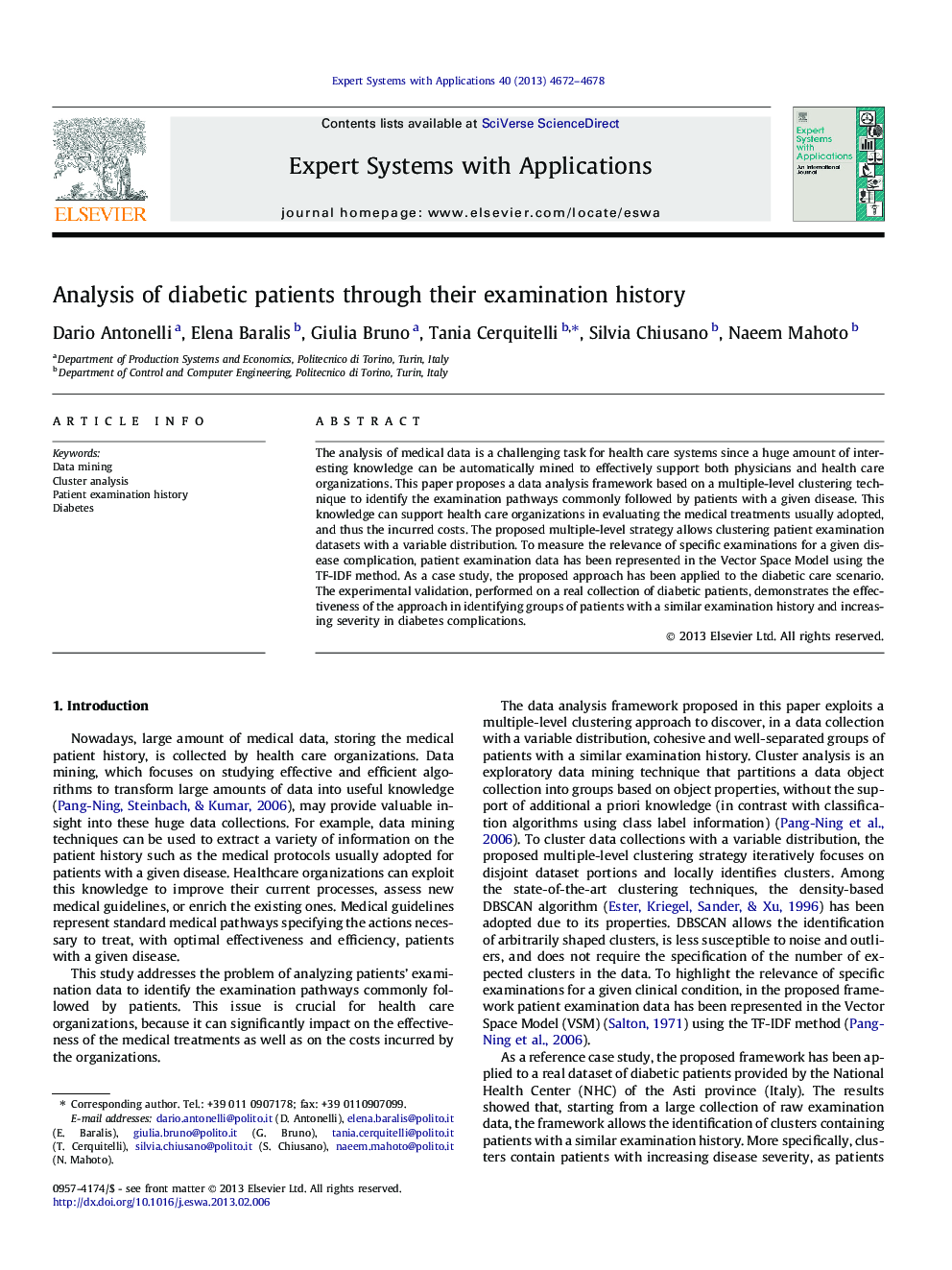| Article ID | Journal | Published Year | Pages | File Type |
|---|---|---|---|---|
| 382696 | Expert Systems with Applications | 2013 | 7 Pages |
The analysis of medical data is a challenging task for health care systems since a huge amount of interesting knowledge can be automatically mined to effectively support both physicians and health care organizations. This paper proposes a data analysis framework based on a multiple-level clustering technique to identify the examination pathways commonly followed by patients with a given disease. This knowledge can support health care organizations in evaluating the medical treatments usually adopted, and thus the incurred costs. The proposed multiple-level strategy allows clustering patient examination datasets with a variable distribution. To measure the relevance of specific examinations for a given disease complication, patient examination data has been represented in the Vector Space Model using the TF-IDF method. As a case study, the proposed approach has been applied to the diabetic care scenario. The experimental validation, performed on a real collection of diabetic patients, demonstrates the effectiveness of the approach in identifying groups of patients with a similar examination history and increasing severity in diabetes complications.
► A data mining framework to identify examination pathways followed by patients. ► A multiple-level clustering approach to analyze data collections with a variable distribution. ► Representation of patient examination data using the TF-IDF scheme. ► A real collection of examination data for diabetic patients analyzed as a reference case study. ► Cohesive and well-separated groups of patients with a similar examination history are discovered.
